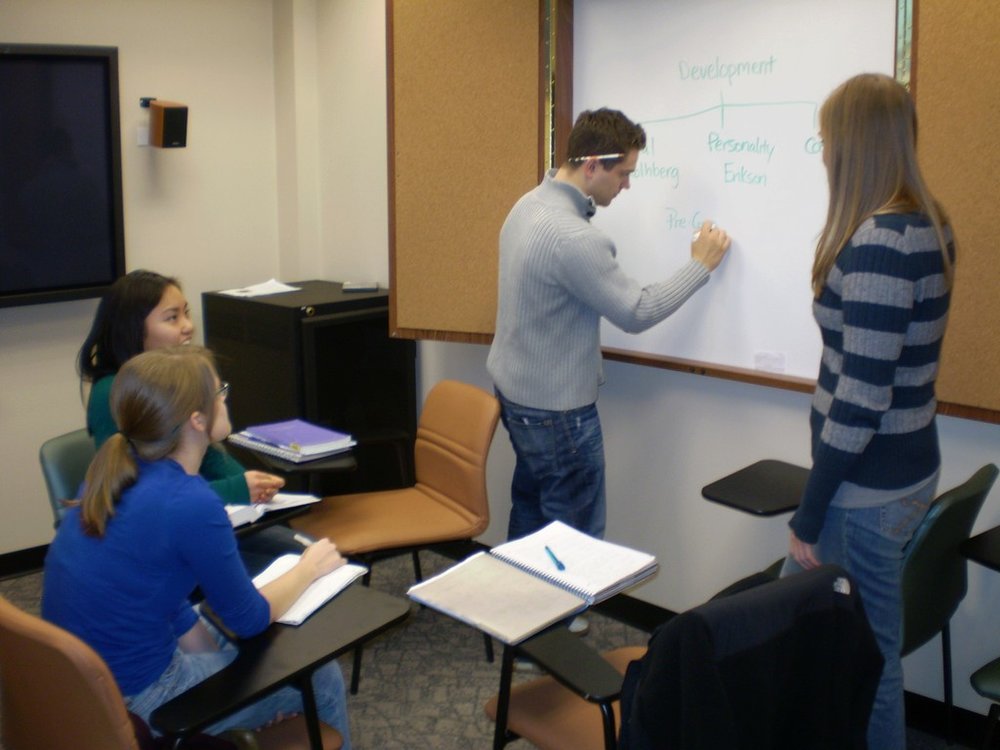Gardner, L. M. (2015). Analysis of student performance in peer led undergraduate supplements. (Ph.D. Dissertation), University of Kansas, Lawrence, Kansas. Retrieved from https://kuscholarworks.ku.edu/bitstream/handle/1808/19159/Gardner_ku_0099D_14264_DATA_1.pdf?sequence=1&isAllowed=y
Foundations of Chemistry courses at the University of Kansas have traditionally accommodated nearly 1,000 individual students every year with a single course in a large lecture hall. To develop a more student-centered learning atmosphere, Peer Led Undergraduate Supplements (PLUS) were introduced to assist students, starting in the spring of 2010. PLUS was derived from the more well-known Peer-Led Team Learning with modifications to meet the specific needs of the university and the students. The yearlong investigation of PLUS Chemistry began in the fall of 2012 to allow for adequate development of materials and training of peer leaders. We examined the impact of academic achievement for students who attended PLUS sessions while controlling for high school GPA, math ACT scores, credit hours earned in high school, completion of calculus, gender, and those aspiring to bepharmacists (i.e., pre-pharmacy students). In a least linear squares multiple regression, PLUS participants performed on average one percent higher on exam scores for Chemistry 184 and four tenths of a percent on Chemistry 188 for each PLUS session attended. Pre-pharmacy students moderated the effect of PLUS attendance on chemistry achievement, ultimately negating any relative gain associated by attending PLUS sessions. Evidence of gender difference was demonstrated in the Chemistry 188 model, indicating females experience a greater benefit from PLUS sessions. Additionally, an item analysis studied the relationship between PLUS material to individual items on exams. The research discovered that students who attended PLUS session, answered the items correctly 10 to 20 percent more than their comparison group for PLUS interrelated items and no difference to 10 percent for non-PLUS related items. In summary, PLUS has a positive effect on exam performance in introductory chemistry courses at the University of Kansas. the implementation of the program in the university, particularly for the accounting faculty.
To download the complete annotated bibliography of more than 1,100 citations of postsecondary peer cooperative learning programs, click on the following link, http://z.umn.edu/peerbib







